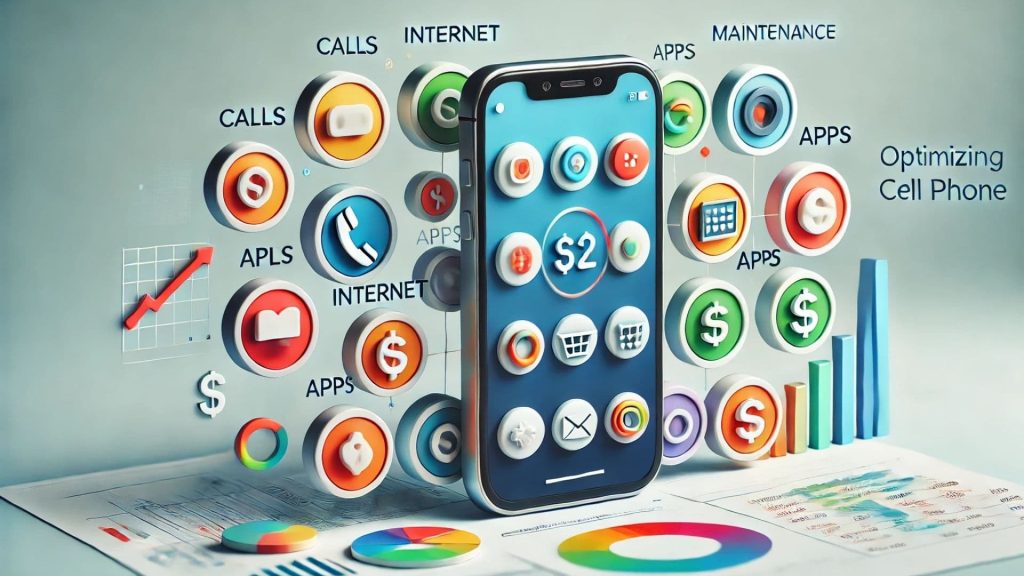
Expense category for cell phone is a crucial consideration for individuals and businesses alike. This article explores the various categories under which cell phone expenses can be classified, emphasizing the importance of accurate categorization for budgeting, expense tracking, and potential tax deductions. By understanding these categories and implementing effective tracking strategies, individuals and businesses can gain better control over their cell phone expenses and optimize their financial management.
Categories of Cell Phone Expenses
Cell phone expenses can be categorized in several ways, depending on individual or business needs.
For Individuals:
- Service Plan Costs: This includes your monthly fees for voice calls, text messaging, and data. It also covers any additional charges for exceeding your data limit or subscribing to premium packages.
- Device Purchase or Lease Costs: This category accounts for the cost of purchasing a new phone or the monthly payments associated with leasing a device.
- Accessories and Add-ons: This category encompasses expenses related to protective cases, chargers, headphones, and specialized apps or software.
- Repairs and Maintenance: Unexpected costs for repairing damage to your phone, replacing the battery, or addressing other device issues fall under this category.
- Taxes and Surcharges: Don’t forget about taxes, regulatory fees, and other surcharges that can significantly increase your overall cell phone bill.
For Businesses:
- Utilities: Some businesses classify cell phone expenses as part of their utilities, alongside expenses like internet and electricity.
- Office Supplies and Equipment: If your business provides phones for employees or purchases accessories and upgrades, these costs might be included in this category.
- Telecommunications Expense: This category specifically tracks all communication-related expenses, including cell phone plans, landline services, and internet costs.
- Employee Reimbursements: If employees use personal cell phones for work and are reimbursed by the company, those reimbursements typically fall under a separate category.
- Miscellaneous Business Expenses: If cell phone usage is minimal and doesn’t fit neatly into other categories, it might be classified as a miscellaneous business expense.
The Importance of Categorizing Cell Phone Expenses
Accurately categorizing cell phone expenses provides several benefits:
- Clearer Budgeting and Expense Tracking: By categorizing expenses, you can easily track where your money is going and make informed decisions about your spending.
- Potential Tax Benefits for Businesses: Businesses can often deduct a portion of their cell phone expenses if they are used for business purposes. Accurate categorization is essential for maximizing these deductions.
- Better Spending Control: Detailed tracking allows you to identify areas where you might be overspending and find opportunities to save money.

Tracking and Optimizing Your Cell Phone Expenses
Here are a few tips to help you effectively manage your cell phone expenses:
- Use a Tracking App or Software: There are numerous apps and software programs designed for expense tracking. These tools can simplify the process of categorizing and monitoring your cell phone costs.
- Create a Spreadsheet: A simple spreadsheet can be an effective tool for tracking your expenses. You can create custom categories and formulas to analyze your spending patterns.
- Regularly Review Your Usage: Take the time to review your cell phone bill each month and identify any unused services or areas where you could potentially reduce your usage.
- Negotiate with Your Provider: Don’t be afraid to contact your cell phone provider and negotiate a better rate or explore alternative plans that might better suit your needs.
FAQs
What is the best way to track cell phone expenses?
Use a budgeting app, expense tracking software, or a simple spreadsheet.
Can I deduct my entire cell phone bill as a business expense?
No, only the portion used for business purposes is deductible.
How can I prove my business cell phone usage for tax deductions?
Keep detailed records of business-related calls, emails, and data usage.
What should I do if my employees use their personal phones for work?
Implement a reimbursement policy with clear guidelines for business and personal use.
By understanding the different expense categories for cell phones, both individuals and businesses can make informed decisions about their mobile expenses. By adopting effective tracking methods and optimizing usage, you can ensure that your cell phone remains a valuable tool without putting a strain on your budget.